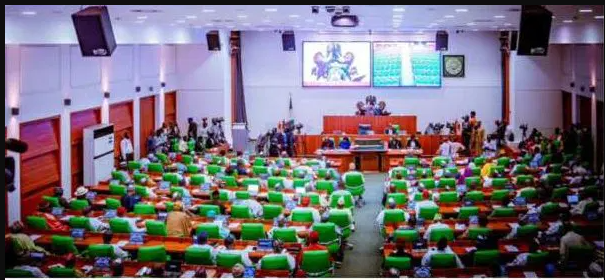A bold legislative move aimed at restoring confidence in Nigeria’s public education and healthcare systems has passed its second reading in the House of Representatives. The bill, sponsored by Hon. Amobi Ogah (Abia State), seeks to ban public and civil servants—including their immediate families—from accessing private schools and hospitals.
Titled the Private Institutions and Health Care Service Providers (Prohibition) Bill, 2025, the proposed law is generating intense national debate as it targets entrenched practices that have long undermined government institutions.
Speaking to journalists after the plenary on Tuesday, Hon. Ogah explained that the objective of the bill is to eliminate conflicts of interest, promote accountability, and revive Nigeria’s public institutions.
“The time for us all to tell ourselves the truth is now. We can no longer continue to inflict serious damage to the psyche of Nigerians,” he stated.
Ogah argued that the bill is designed to curb educational and medical tourism by compelling public officials to depend on the services they help fund and manage.
“Due to the patronage of private schools and healthcare facilities, public counterparts have become a shadow of themselves, with little or no infrastructural development and fallen standards,” he lamented.
The lawmaker highlighted that despite the ₦1.336 trillion allocated to healthcare in the 2024 budget, Nigerians still spent at least $29.29 billion on foreign medical expenses under the Buhari administration. In the education sector, $38.17 million was spent on foreign schooling between January and March 2024 alone, adding to $218.87 million recorded in 2023.
Reflecting on the legacy of Nigeria’s founding fathers—Ahmadu Bello, Nnamdi Azikiwe, Obafemi Awolowo, and Tafawa Balewa—Ogah noted they were all products of public education, a legacy that has since eroded.
“This penchant for private services was alien to our democrats of old. Today, it has become an unwholesome trend for both public and civil servants, to the detriment of the nation’s economy.”
While similar proposals in past assemblies failed—including a 2019 motion to stop public officials from seeking medical treatment abroad—Ogah expressed optimism that the current bill will gain traction.
“It does not speak well of our country that our presidents and notable government functionaries are seen going abroad for medical treatment and even dying in the process,” he said.
With the bill now proceeding to the committee stage for further scrutiny, it is expected to ignite robust deliberations among lawmakers, unions, and the general public.
If passed into law, the bill could mark a turning point in Nigeria’s public sector reform, potentially transforming service delivery and re-establishing public trust in schools and hospitals funded by taxpayers.

